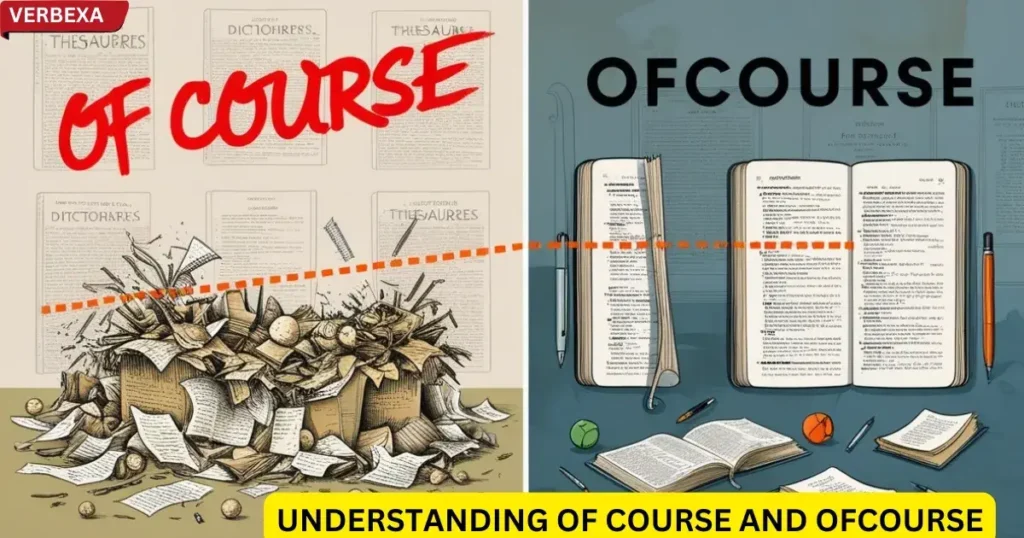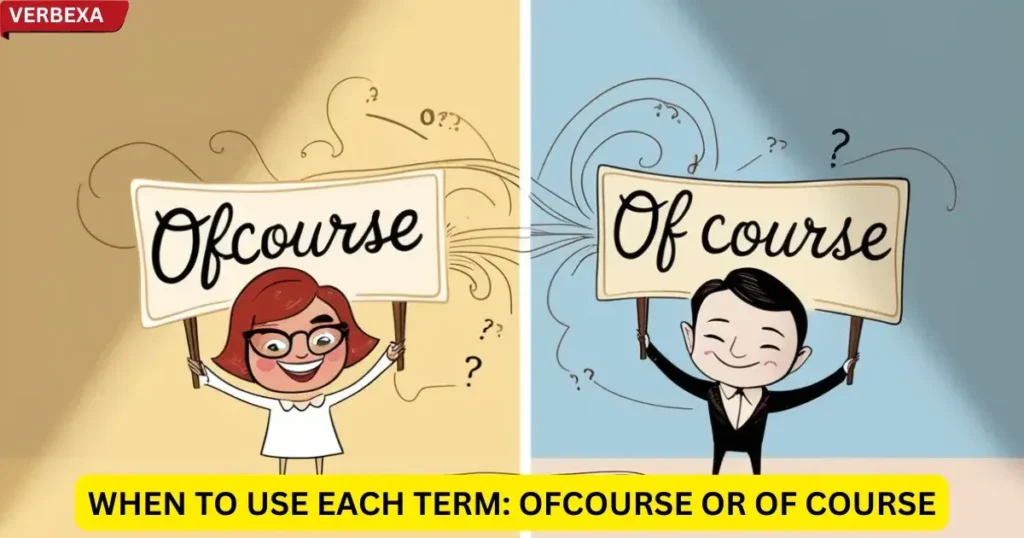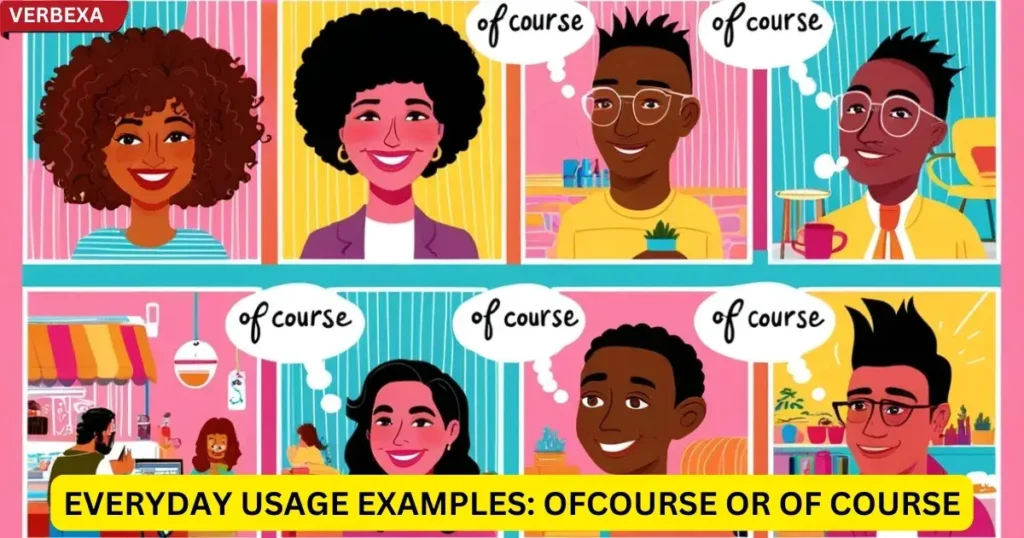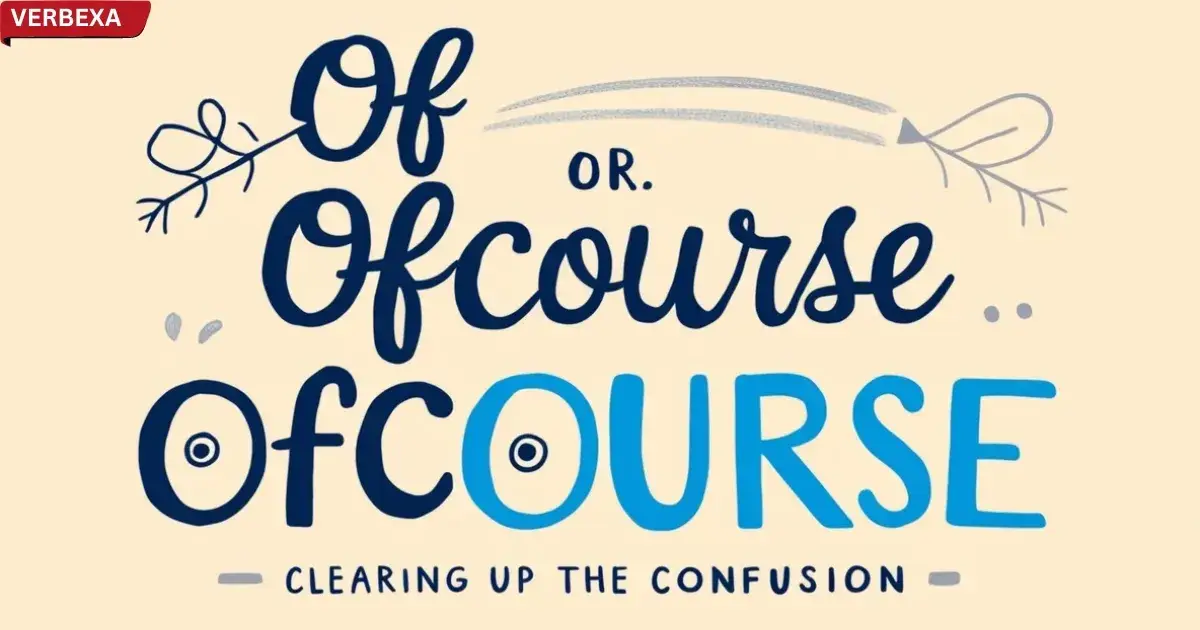In the vast landscape of English language communication, few phrases spark as much confusion as the seemingly simple expression “of course”. Have you ever found yourself hesitating, fingers hovering over the keyboard, wondering whether to type “of course” or “ofcourse”? You’re not alone. This language confusion is more common than you might think, and understanding the nuanced difference can significantly improve your writing clarity.
Imagine sending a professional email where a tiny spelling error could undermine your credibility, or texting a friend where an incorrect spelling might raise eyebrows. The distinction between “of course” and “ofcourse” is more than just a trivial typographical error—it’s about maintaining professional communication and language precision.
Understanding Of Course and Ofcourse

Of Course: The Correct Phrase
“Of course” is a standard English phrase used to:
- Express agreement
- Indicate something is naturally expected
- Provide an affirmation
- Convey a sense of obviousness
Example: “Of course I’ll help you with the project,” she said confidently.
Ofcourse: The Incorrect Spelling
“Ofcourse” is not a legitimate English phrase. It’s a misspelling that erroneously combines two words into one, which is never acceptable in formal writing or professional communication.
Synonyms: Alternatives to Express Agreement
Synonyms for “Of Course”:
- Certainly
- Definitely
- Undoubtedly
- Absolutely
- Naturally
- Surely
- Without doubt
- Unquestionably
- Indubitably
- Positively
Synonyms related to “Ofcourse”:
- Misspelling
- Error
- Typo
- Mistake
- Incorrect usage
- Language blunder
- Spelling slip
- Writing error
- Communication flaw
- Linguistic inaccuracy
Comparison Table: Of Course vs Ofcourse
| Aspect | “Of Course” | “Ofcourse” |
|---|---|---|
| Spelling | Two separate words | Incorrect one-word version |
| Grammatical Role | Phrase expressing agreement | No grammatical validity |
| Formal Writing | Acceptable | Unacceptable |
| Informal Writing | Perfectly suitable | Inappropriate |
| Context of Use | Conversations, emails, reports | None |
When to Use Each Term: Ofcourse or Of course

Using “Of Course”
- In professional emails
- During casual conversations
- In formal reports
- When expressing agreement
- To indicate something is expected
Avoiding “Ofcourse”
- Never use in any form of written communication
- Immediately correct if you’ve typed it
- Understand it’s always a spelling error
Everyday Usage Examples: Ofcourse or Of course

- Correct: “Of course I’ll attend the meeting tomorrow.”
Incorrect: “Ofcourse I’ll attend the meeting tomorrow.” - Correct: “Can you help me with this report?” “Of course, I’d be happy to assist.”
Incorrect: “Can you help me with this report?” “Ofcourse, I’d be happy to assist.”
Practical Tips to Remember
- Always write “of course” as two separate words
- Use context to guide your usage
- Proofread your writing carefully
- When in doubt, read the sentence aloud
Conclusion: Mastering “Of Course”
Understanding the difference between ofcourse or of course is more than a mere spelling exercise—it’s about communication clarity. By recognizing that “of course” is the only correct form, you demonstrate linguistic precision and professionalism.
Remember: In the world of communication, details matter. “Of course” is your gateway to clear, confident expression.
Final Takeaway
- “Of course” = Correct ✅
- “Ofcourse” = Incorrect ❌

This author is a passionate linguist and grammar enthusiast, dedicated to helping individuals master the art of language. With years of experience in teaching and editing, she brings clarity and precision to every sentence. Tina’s mission is to empower writers of all levels to express themselves with confidence and excellence.

